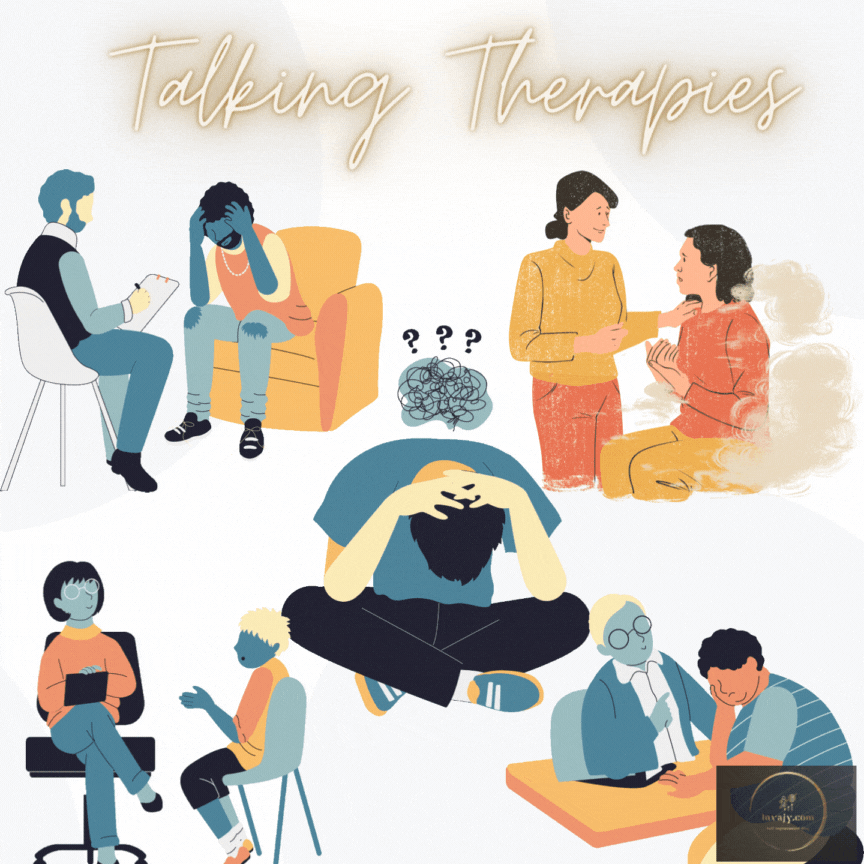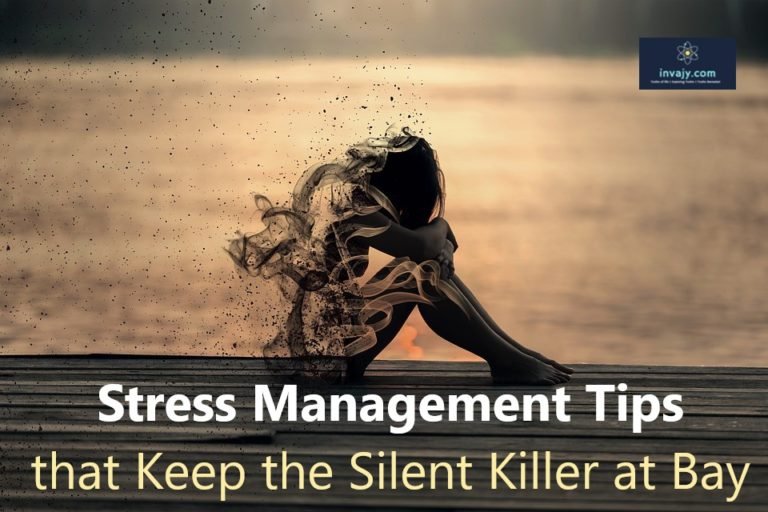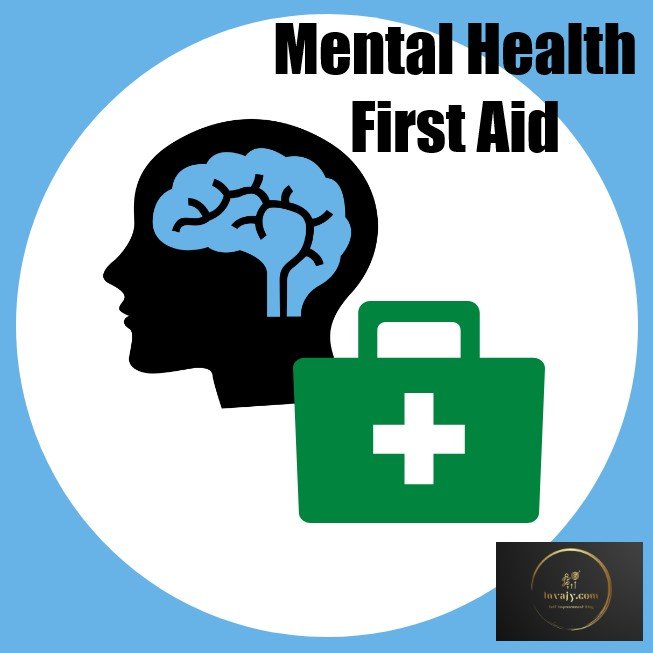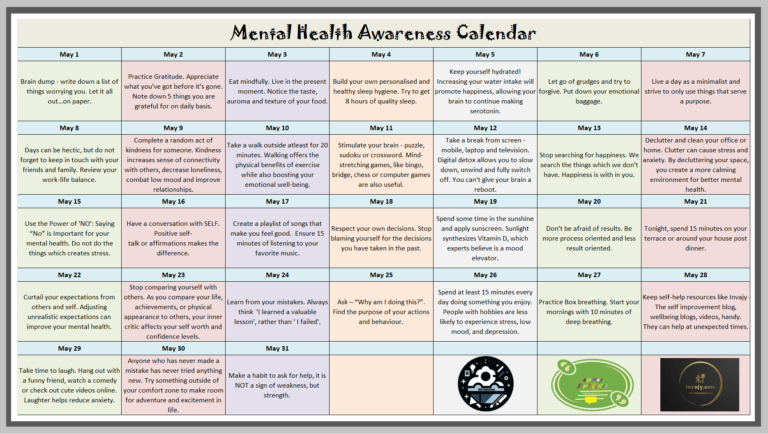Healing Through Conversation with Talking Therapies
Unlock the benefits of Talking Therapies. Discover how these therapeutic conversations can provide emotional support, foster personal growth, and help you navigate life’s challenges effectively

In the realm of mental health and well-being, the advent of talking therapies has revolutionized the way we address and treat mental illness. Also known as psychotherapy or counseling, talking therapies encompass a wide range of therapeutic approaches aimed at helping individuals overcome emotional difficulties, improve coping skills, and achieve greater mental and emotional balance. This article delves into the significance, types, benefits, and mechanisms behind talking therapies, shedding light on their profound impact on personal growth and healing.
What is Talk Therapy?
Talking therapies are therapeutic interventions that involve conversations between a trained therapist and an individual or a group. These conversations provide a safe and confidential space for individuals to explore their thoughts, feelings, and behaviors. The therapist employs various techniques and approaches to facilitate understanding, self-awareness, and positive change. While therapists do not prescribe medication, they play a crucial role in helping individuals understand the root causes of their emotional distress and develop effective strategies to manage and overcome these psychological challenges.
The term ‘talking therapy’ is quite often used interchangeably with other names like talking treatment, counselling, therapy, psychotherapy or psychological therapy. So, do not get confused with them, all of these are more or less same.
Types of Talking Therapies
There is a wide spectrum of talking therapies, each with its unique focus and techniques. Some of the most common types include:

Cognitive Behavioral Therapy (CBT)
CBT focuses on identifying and challenging negative thought patterns and behaviors. The cognitive behavioral therapy looks at how your thoughts and beliefs affect your feelings and behavior. By changing how you react to your thoughts (for example, challenging negative thoughts) and how you behave (for example, trying new activities), you can start to feel better. It helps individuals develop healthier cognitive patterns and coping mechanisms.
CBT tends to be short-term – often between 8 and 15 sessions – and takes a more structured approach than other therapies. It looks at specific problems rather than how you feel more generally. You’ll often have tasks to do between sessions, such as keeping a diary or practicing the skills you’ve learned in therapy.

CBT can be helpful in a wide range of mental health disorders, including depression, anxiety, obsessive-compulsive disorder, eating disorders, post-traumatic stress, schizophrenia and managing long-term illnesses.
Dialectical Behavior Therapy (DBT)
Dialectical Behavior Therapy (DBT) is a talk therapy for the people who experience emotions very intensely. The term “dialectical” comes from the idea that bringing together two opposites in therapy – acceptance and change – brings better results than either one alone. DBT focuses on helping people accept the reality of their lives and their behaviors, as well as helping them learn to change their lives, including their unhelpful behaviors.
DBT tends to be often between 24 and 48 sessions and usually takes at least six months to a year. This talk therapy combines Cognitive Behavioral Therapy (CBT) methods with meditation techniques.
This therapy was originally designed to treat borderline personality disorder, but now it’s also used for eating disorders, substance use disorder, depression and problems such as self-harm or suicidal feelings.
Psychodynamic Therapy
Psychodynamic therapy focuses on how your childhood experiences and unconscious mind influence your present thoughts, feelings, relationships and behavior. Rooted in the theories of Freud, this therapy explores unconscious thoughts and past experiences to understand how they influence current emotions and behaviors.
Short-term psychodynamic therapy tends to be between 25–30 sessions over a period of 6–8 months, while long-term psychodynamic therapy may last for longer than a year or span more than 50 sessions. This therapy increases the awareness about the feelings, emotions and thoughts you’re unaware of but that affect your choices and actions in the present day.
Psychodynamic therapy can be pretty useful in depression, anxiety, post-traumatic stress, eating disorders, addictions recovery and and long-term physical health problems.
Humanistic Therapy
Humanistic therapy lets you explore your whole self rather than just specific problems. It aims to help you grow, live your life to the full and be true to yourself. Your therapist will offer you empathy, warmth and genuineness to help you make these changes.
Humanistic therapy is client-led, so your therapist will work with you on the issues you want to explore. Your therapy may be short or long-term, depending on your needs. The therapy emphasizes personal growth and focuses on free will, human potential, and self-discovery. It aims to help you develop a strong and healthy sense of self, explore your feelings, find meaning, and focus on your strengths.
It’s based on the belief that we are all capable of growth, but that life experiences may have blocked us from reaching our potential. Your therapist can help you identify and remove those blocks.
Family Therapy
Family therapy is a form of talk therapy that focuses on the improvement of relationships among family members and couples. This approach involves working with families to improve communication and resolve conflicts, recognizing the impact of family dynamics on individual well-being.
Family therapy can be short term – often between 8 and 15 sessions – while dealing with immediate issues, or long term – months or years – while dealing with mental health conditions and/or complex issues. The therapy approach remains to nurture change and development. This tends to view change in terms of the systems of interaction between family members.
Family therapy helps individuals, couples, and families improve their relationships and resolve conflicts. It can also help treat specific mental health or behavioral conditions, such as substance use disorder or oppositional defiant disorder.
Group Therapy
Group therapy is a form of psychotherapy or talk therapy is conducted in a group setting that involves one or more therapists working with several people at the same time. This therapy encourages participants to share their experiences and support one another under the guidance of a therapist.
Typically, groups meet each week for couple of hours and address specific concerns shared by group members. The minimum number of recommended sessions is often six, but many people attend for a full year.
Group therapy can be used to treat a variety of conditions including but not limited to emotional trauma, anxiety, depression, post-traumatic stress disorder (PTSD), and attention deficit hyperactivity disorder (ADHD)
Benefits of Talking Therapies
The benefits of talking therapies extend beyond traditional medical treatments. They provide a holistic approach to healing by addressing the emotional, cognitive, and behavioral aspects of an individual’s life. Some key benefits include:
Increased Self-Awareness
Talking therapies help individuals gain a deeper understanding of their thoughts, feelings, and behaviors, allowing them to identify negative patterns and triggers. Increased self awareness helps acceptance and bring required changes.
Enhanced Coping Skills
Therapists equip individuals with effective coping strategies to manage stress, anxiety, and other challenges in healthier ways.
Improved Relationships
Through improved communication skills and self-awareness, individuals can cultivate healthier relationships with others. Better relationship helps further in getting support and share experiences.
Empowerment
Talking therapies empower individuals by fostering a sense of control over their emotions and behaviors. When a person is able to notice the triggers and control the reaction, it boosts confidence.
Resolution of Trauma
Therapists help individuals process and heal from past traumatic experiences, reducing the emotional impact of these events.
Management of Mental Disorders
Talking therapies are effective in managing conditions such as depression, anxiety disorders, and post-traumatic stress disorder, often as standalone treatments or in conjunction with medication.
The Mechanisms Behind Talking Therapies
Talking therapies work through several mechanisms that contribute to their effectiveness:
Catharsis
Sharing one’s thoughts and emotions in a supportive environment provides emotional release and relief.
Insight
Through conversations with a therapist, individuals gain new perspectives on their challenges and develop insights into their behaviors.
Self-Reflection
The process of discussing one’s thoughts and experiences encourages self-reflection, leading to personal growth and positive change.
Behavioral Change
Therapists assist individuals in identifying and changing negative thought patterns and behaviors, which can lead to better emotional outcomes.
Brain Plasticity
Engaging in talking therapies can reshape neural pathways, contributing to healthier thought patterns and emotional responses.
Seeking Help and Breaking the Stigma
One of the most significant barriers to accessing talking therapies is the stigma associated with seeking mental health support. However, as societal attitudes change and awareness grows, more individuals are recognizing the importance of seeking help when needed. It’s crucial to remember that talking therapies are not limited to those with diagnosed mental disorders; they can be beneficial for anyone facing emotional challenges, stress, or life transitions.

Wrapping Up!
Talking therapies have emerged as a powerful tool in the realm of mental health care, offering individuals a pathway to healing through open and supportive conversations. The impact of these therapies reaches beyond the realm of psychology, influencing various facets of an individual’s life. Whether addressing clinical disorders or personal growth, the power of talking therapies lies in their ability to foster understanding, change, and empowerment, ultimately contributing to a healthier and more fulfilling life journey.
That’s all from my side. I hope, you liked this article on mental health. Please share this on your favorite social media portals with your friends and relatives.
(Disclaimer: This article is for general information only. Before adopting preventive methods/measures/treatment, please seek medical advice)






